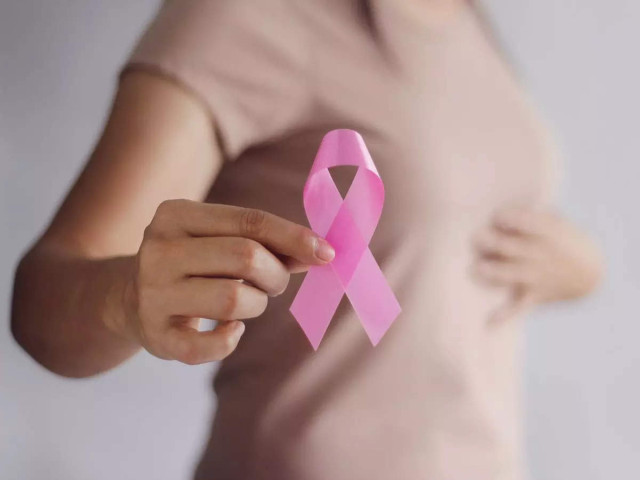An American study has found that women who enter menopause before the age of 40 are more likely to develop breast cancer. The findings were presented at the ‘Endocrine Society’s annual meeting in Massachusetts, Boston held from in June 1 – June 4. Endocrinologists provide diagnoses and care for health issues rooted in the endocrine system.
“An endocrinologist is responsible for evaluating diabetes, bone loss, and a range of hormonal issues, including hormones from the pituitary, adrenal, and thyroid glands as well as reproductive organs Going by the study findings, the women who enter menopause early may also be at greater risk of ovarian cancer.
And the relatives of women who experience early menopause – including men – also face a greater cancer risk, according to the findings of the American study. Study leader Dr. Corrine Welt, of the University of Utah Health in Salt Lake City, said: “There is also higher risk of breast, prostate and colon cancer in relatives of these women,” reported the ‘Saipan Tribune’.
Dr. Welt and her colleagues began the study with the hypothesis that some women with primary ovarian insufficiency and their relatives might be predisposed to reproductive or hormone-related cancers. Primary ovarian insufficiency is a condition that occurs when a woman’s ovaries stop working normally before the age of 40.
The research team identified 613 women with primary ovarian insufficiency and 165 women who experienced early menopause from two healthcare systems in Utah that serve 85 per cent of the population. They used genealogy information to find relatives and focused on cancer diagnoses among the women and their family members.
The research team specifically looked at those who were diagnosed with breast, ovarian, endometrial, colon, testicular, and prostate cancers. They discovered that women with early menopause were at double the risk for breast cancer. The risk was increased by almost four times for ovarian cancer.
Breast cancer risk was increased 1.3 times and colon cancer by 1.5 times in second-degree relatives, such as aunts, uncles, grandparents, nieces, or nephews. Prostate cancer was increased by 1.3 to 1.6 times in first-, second-, and third-degree relatives, such as greatgrandfathers and first cousins.
Dr. Welt said: “Women who have infertility from low egg numbers or experience early menopause should make sure they are regularly screened for breast cancer, especially if they have family members with cancer.”
She added: “Doctors who practice general medicine, gynecology and fertility treatment should be aware that early menopause increases risk for a number of diseases, and they should now be aware that breast cancer may be one of these diseases to watch for.”




















